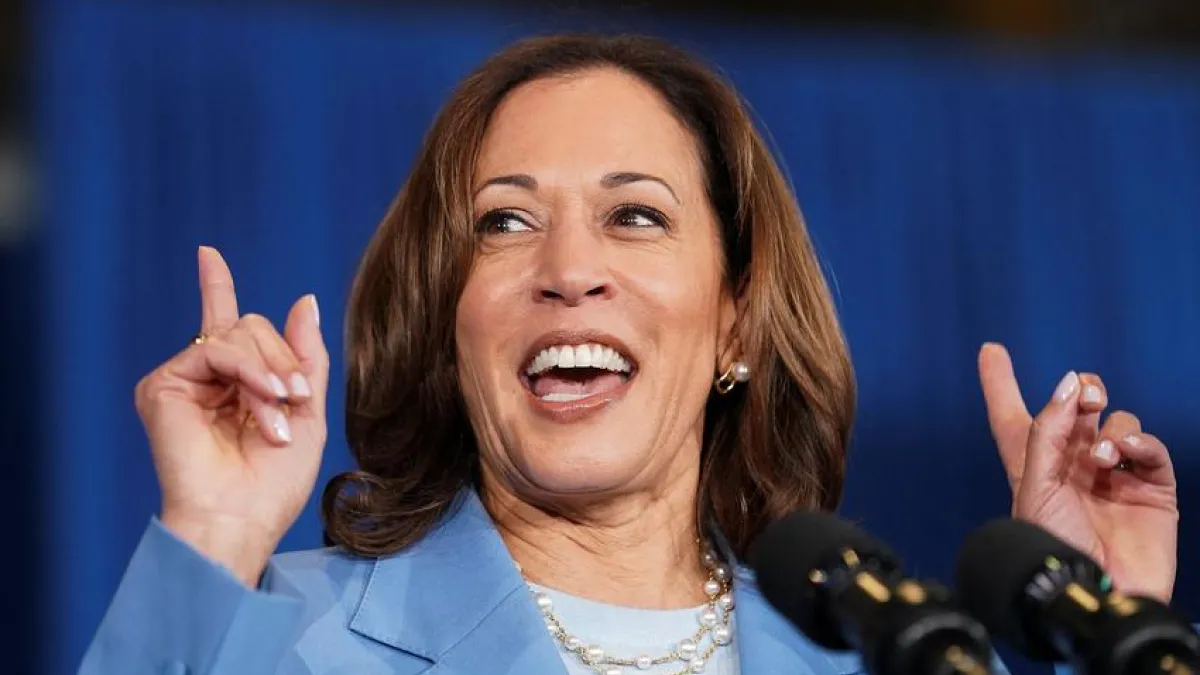Kamala Harris has secured enough support to clinch the Democratic nomination. This victory marks a significant milestone in her political career. With her extensive experience and strong campaign, she has managed to win over many voters. This article will detail her journey to this achievement.
The Path to Nomination
Kamala Harris began her campaign with a clear vision. She focused on key issues like healthcare, education, and justice reform. Her message resonated with a wide range of voters. Over time, she built a strong base of supporters.
Early in the campaign, Harris faced tough competition. Many candidates vied for the nomination. However, her consistent performance in debates and town halls set her apart. She showcased her expertise and commitment to the Democratic values.
Key Endorsements
One major factor in her success was securing key endorsements. Many influential figures within the Democratic Party backed her. These endorsements gave her campaign a significant boost. Notably, former President Barack Obama and former Secretary of State Hillary Clinton publicly supported her. Their support helped her gain credibility and attract more voters.
Grassroots Support
Another critical aspect of her campaign was grassroots support. Harris focused on engaging with communities across the country. She listened to the concerns of everyday Americans. This approach helped her build a loyal base of supporters. Moreover, her team used social media effectively to connect with voters. They shared her policies and updates regularly, keeping her supporters informed and engaged.
Overcoming Challenges
Despite her success, Kamala Harris faced numerous challenges. Her campaign had to navigate the complexities of a highly competitive race. Additionally, she dealt with personal attacks and misinformation. However, Harris remained focused on her goals. She addressed these challenges head-on and continued to push her message.
Winning the Primaries
Kamala Harris’s path to clinching the Democratic nomination involved winning key primaries. Early victories in states like Iowa and New Hampshire set the tone for her campaign. These wins gave her momentum and increased media coverage. As the primaries progressed, she continued to perform well. Her success in diverse states showcased her broad appeal.
The Role of Campaign Strategy
Harris’s campaign strategy played a crucial role in her victory. Her team crafted a comprehensive plan that targeted key demographics. They focused on battleground states and prioritized voter outreach. Furthermore, they adapted to the challenges posed by the COVID-19 pandemic. Virtual town halls and online campaigns became essential tools for reaching voters.
Fundraising Efforts
Fundraising was another critical component of Kamala Harris’s campaign. She successfully raised substantial funds from both small donors and large contributors. This financial support enabled her to run extensive advertising campaigns. Additionally, it allowed her to hire a skilled team and organize large-scale events. Her fundraising success demonstrated her widespread support and strong organizational capabilities.
Policy Proposals
Kamala Harris’s policy proposals were central to her campaign. She advocated for comprehensive healthcare reform, emphasizing the need for affordable and accessible care. Education was another key focus, with plans to increase funding for public schools and make college more affordable. Furthermore, she proposed criminal justice reforms aimed at reducing incarceration rates and addressing systemic racism.
Connecting with Voters
Harris’s ability to connect with voters was a significant factor in her success. She often shared personal stories and experiences, making her relatable to many Americans. Her background as a prosecutor and senator gave her credibility on various issues. Additionally, she demonstrated empathy and understanding, which resonated with voters seeking genuine leadership.
The Road Ahead
With the Democratic nomination secured, Kamala Harris now faces the challenge of the general election. She will need to continue building on her success and expanding her support base. Her focus will likely shift to uniting the Democratic Party and appealing to undecided voters. Furthermore, she will have to prepare for debates and face off against the Republican nominee.
Conclusion
Kamala Harris’s journey to clinching the Democratic nomination is a testament to her determination and strategic approach. She has managed to overcome significant challenges and secure widespread support. As she moves forward to the general election, her campaign will aim to build on this momentum. Harris’s victory represents a historic moment for the Democratic Party and American politics.









